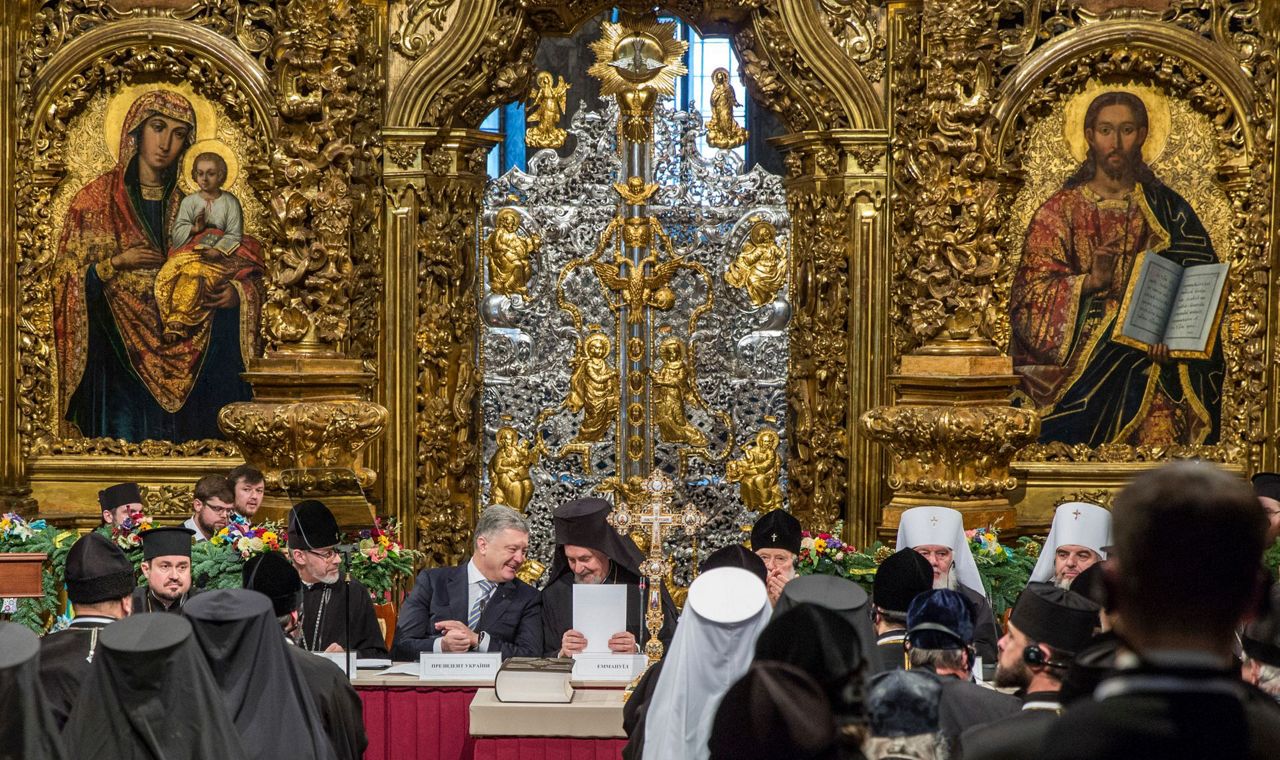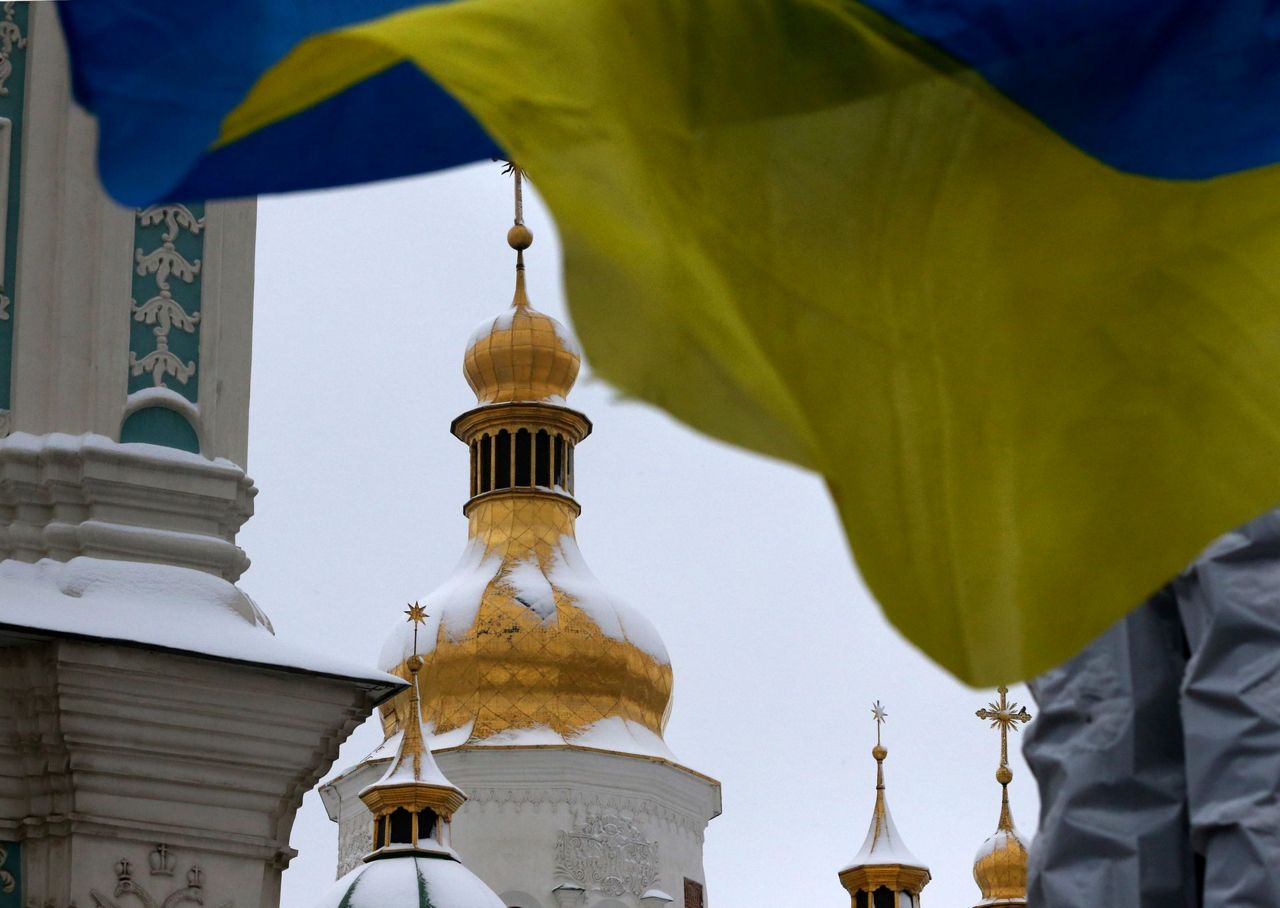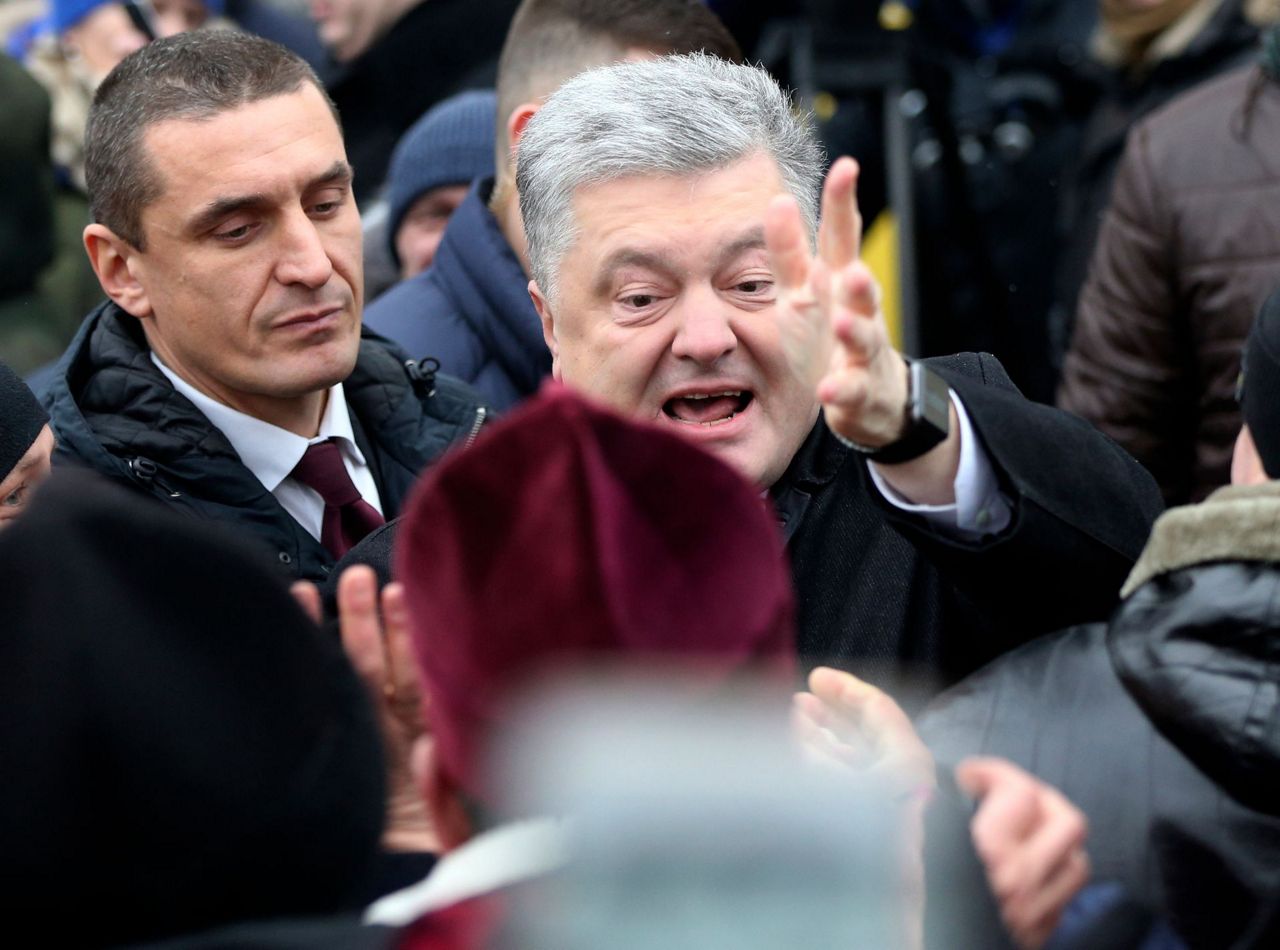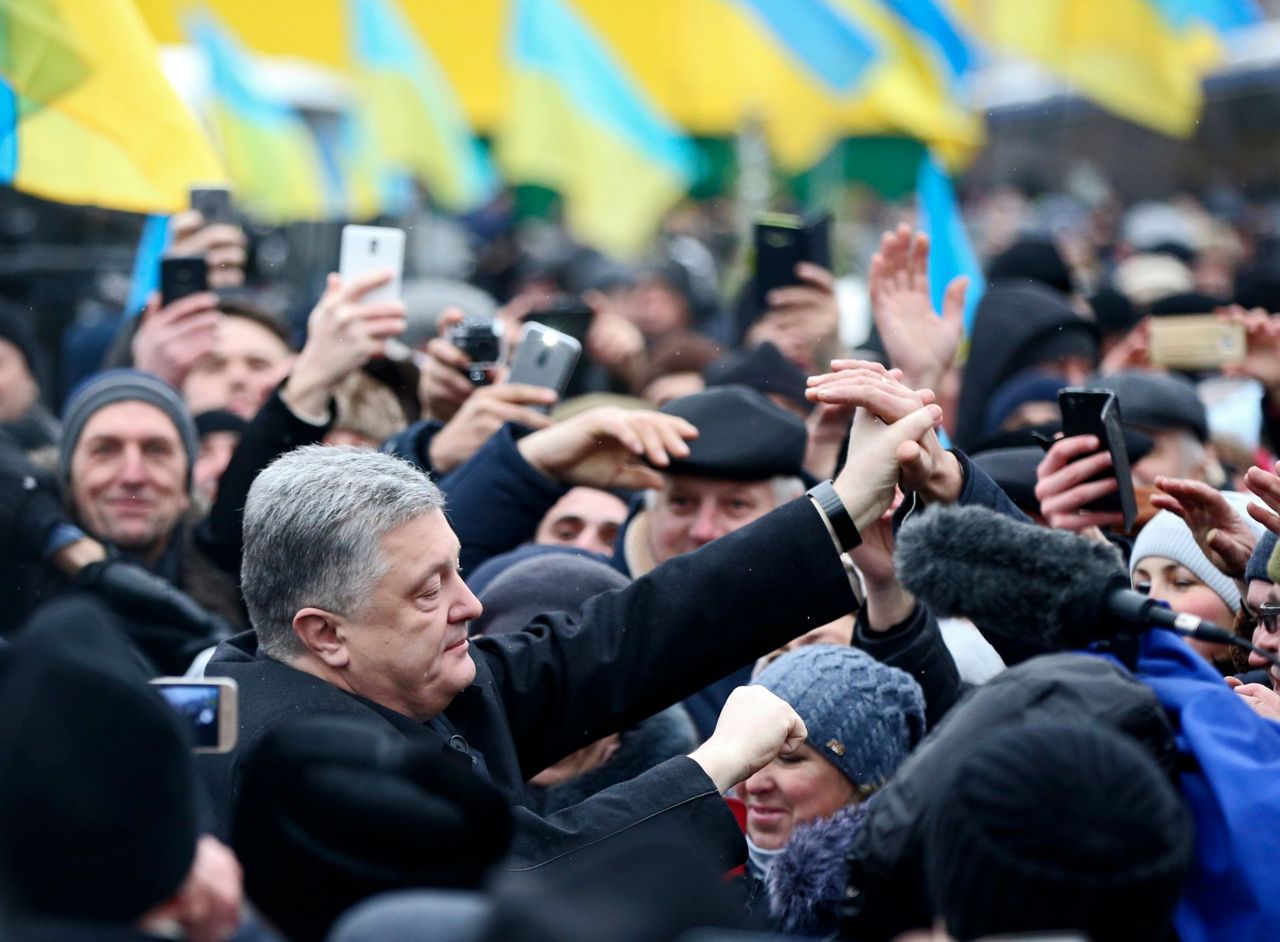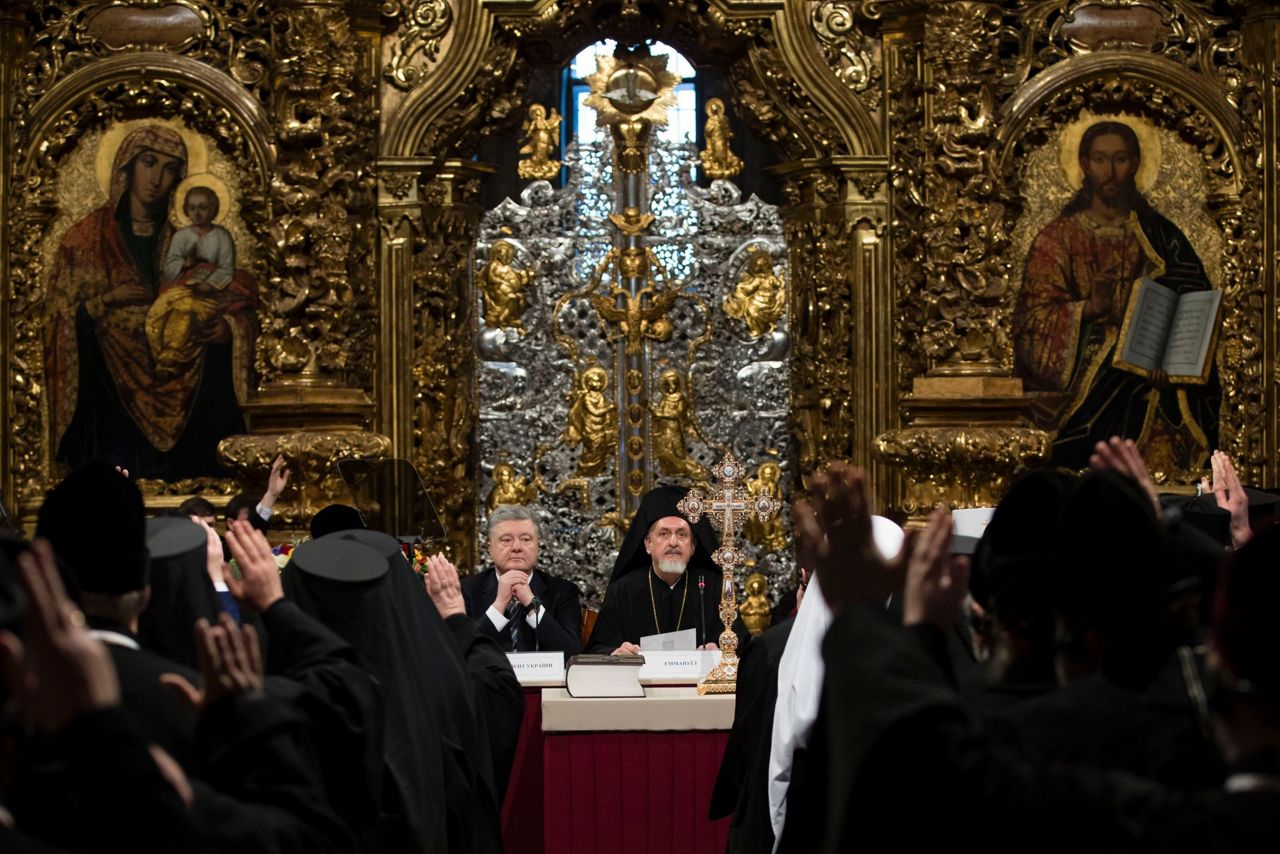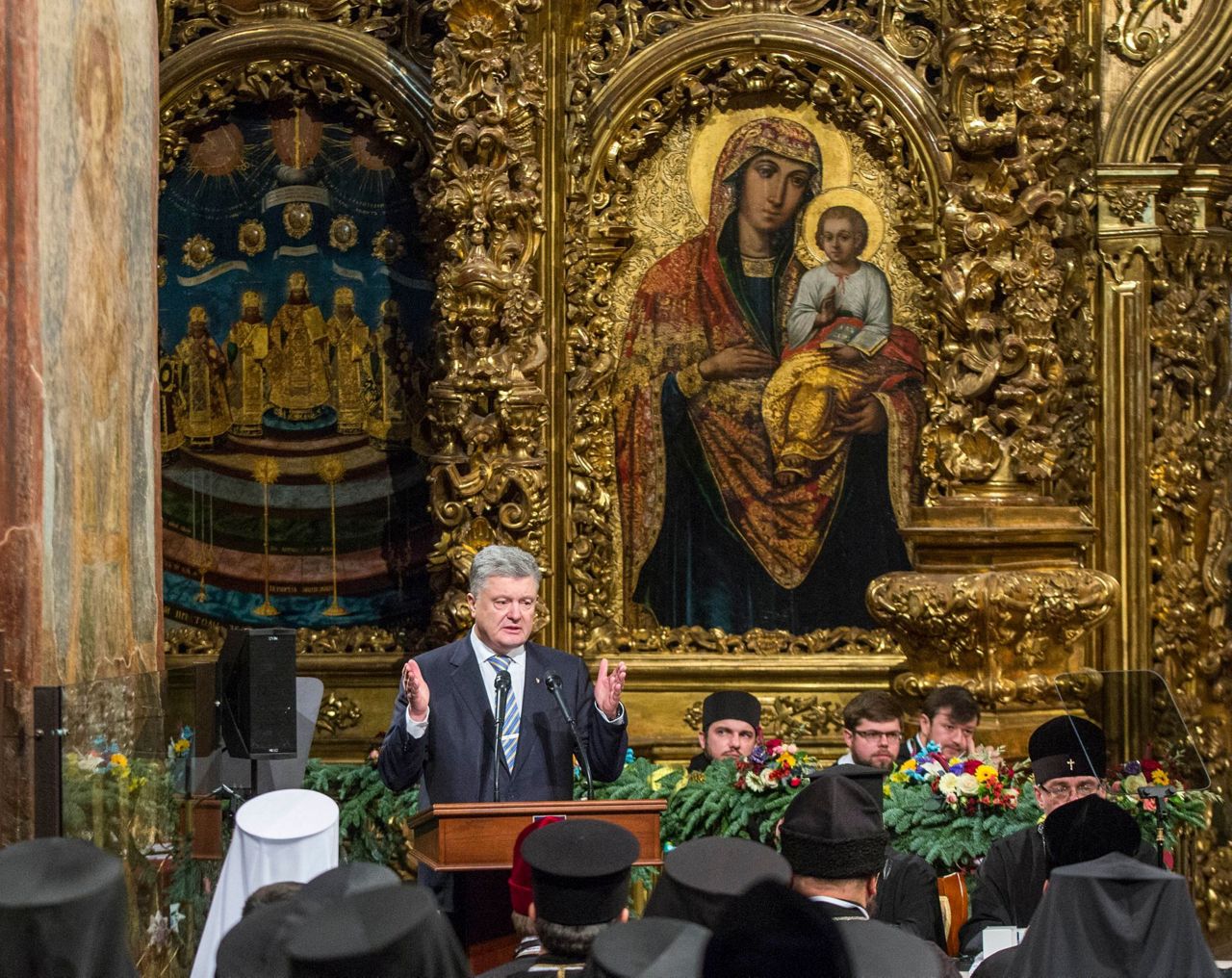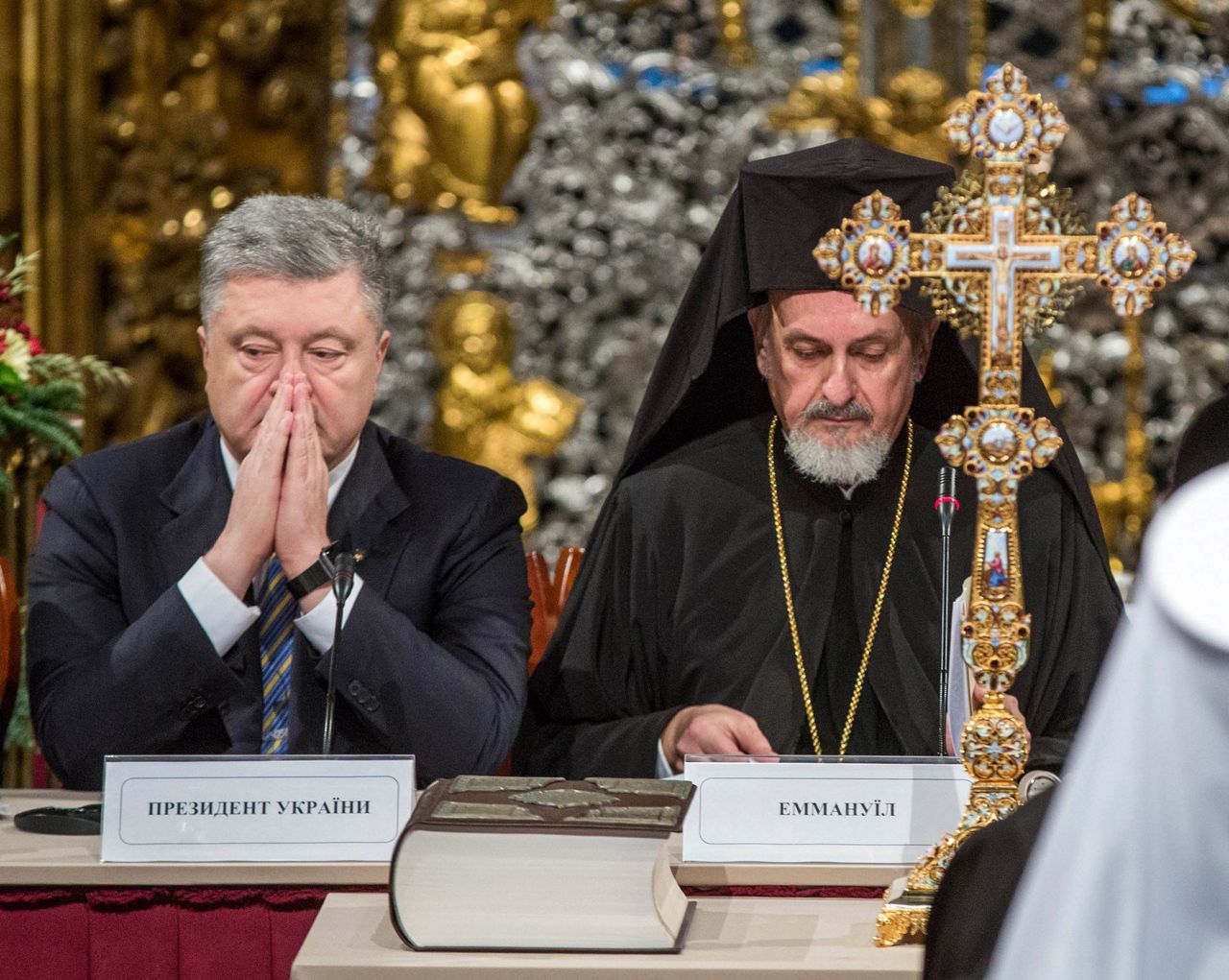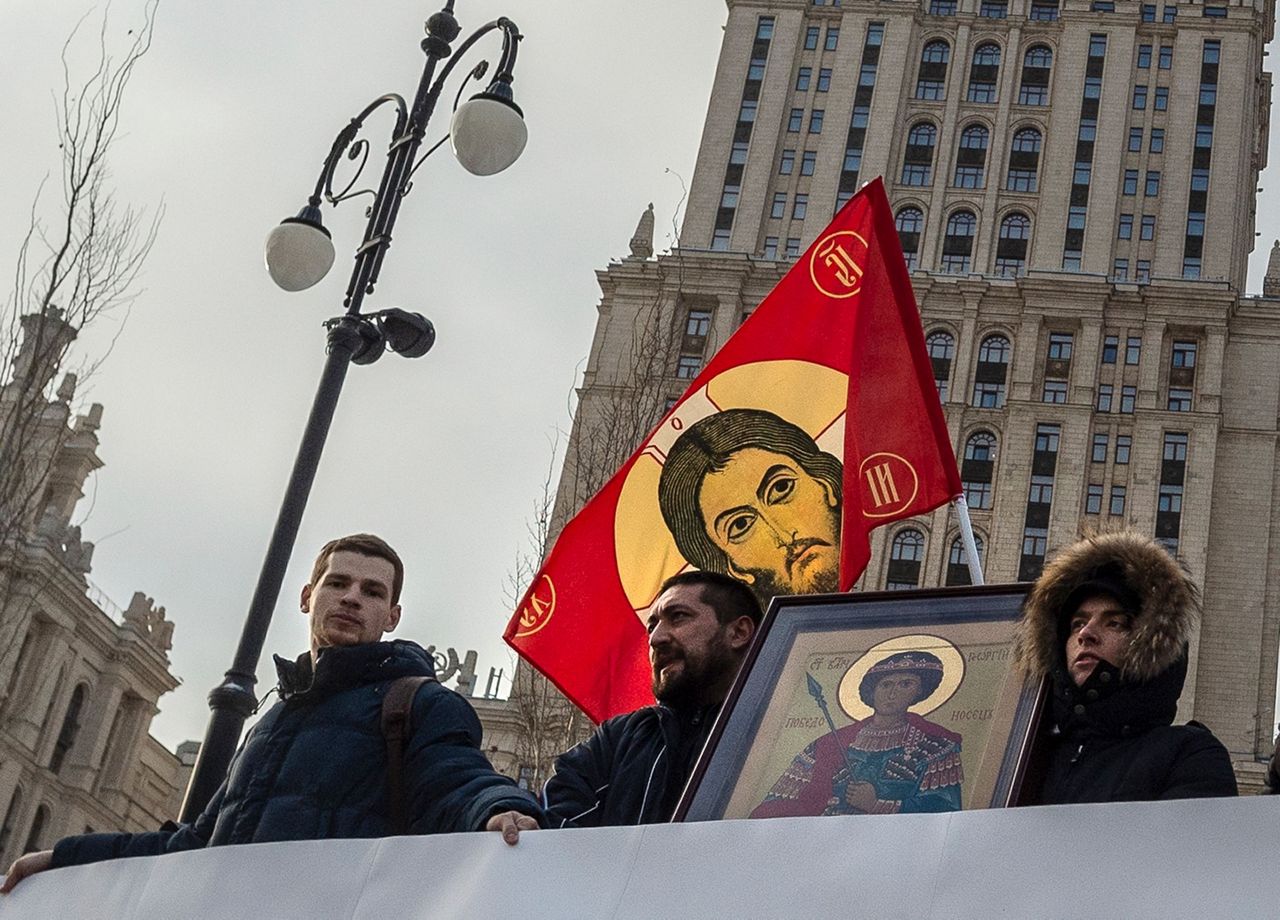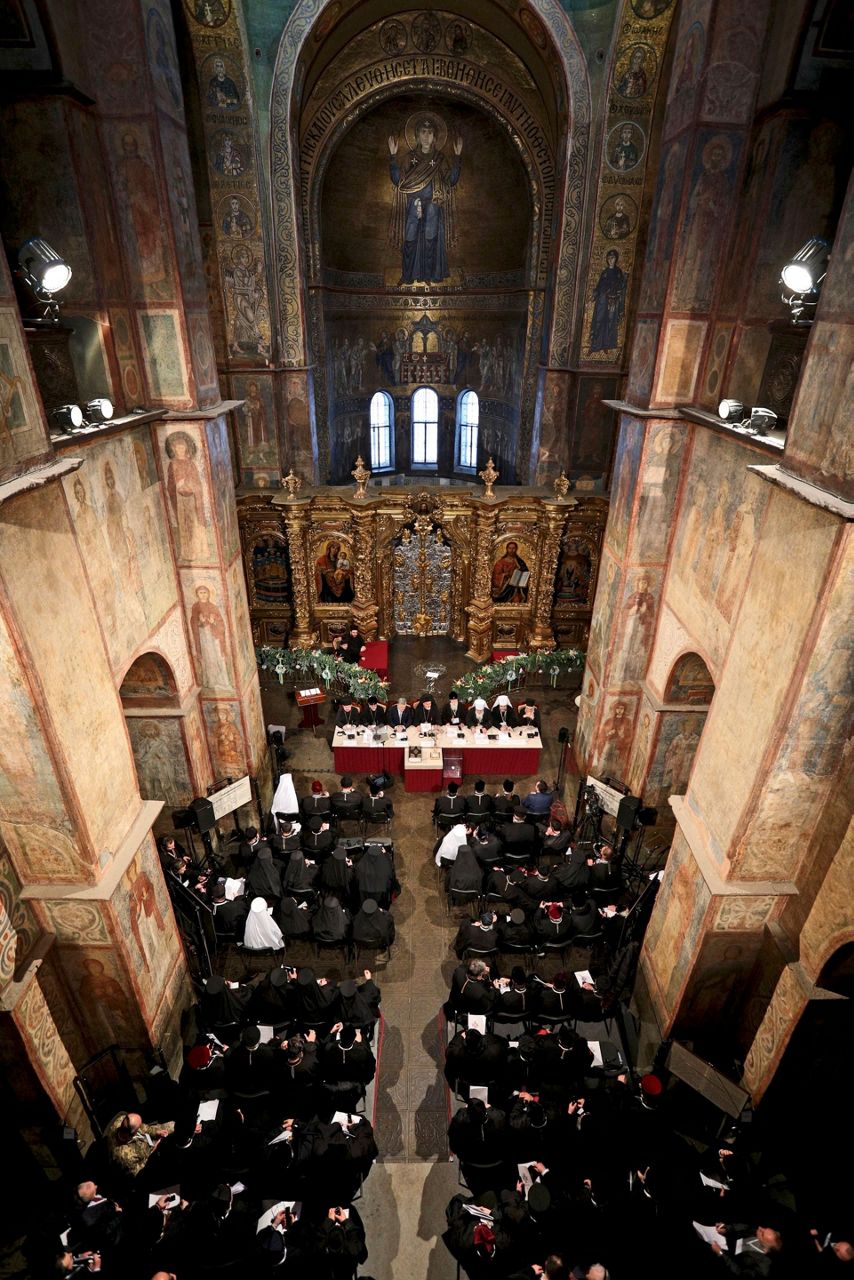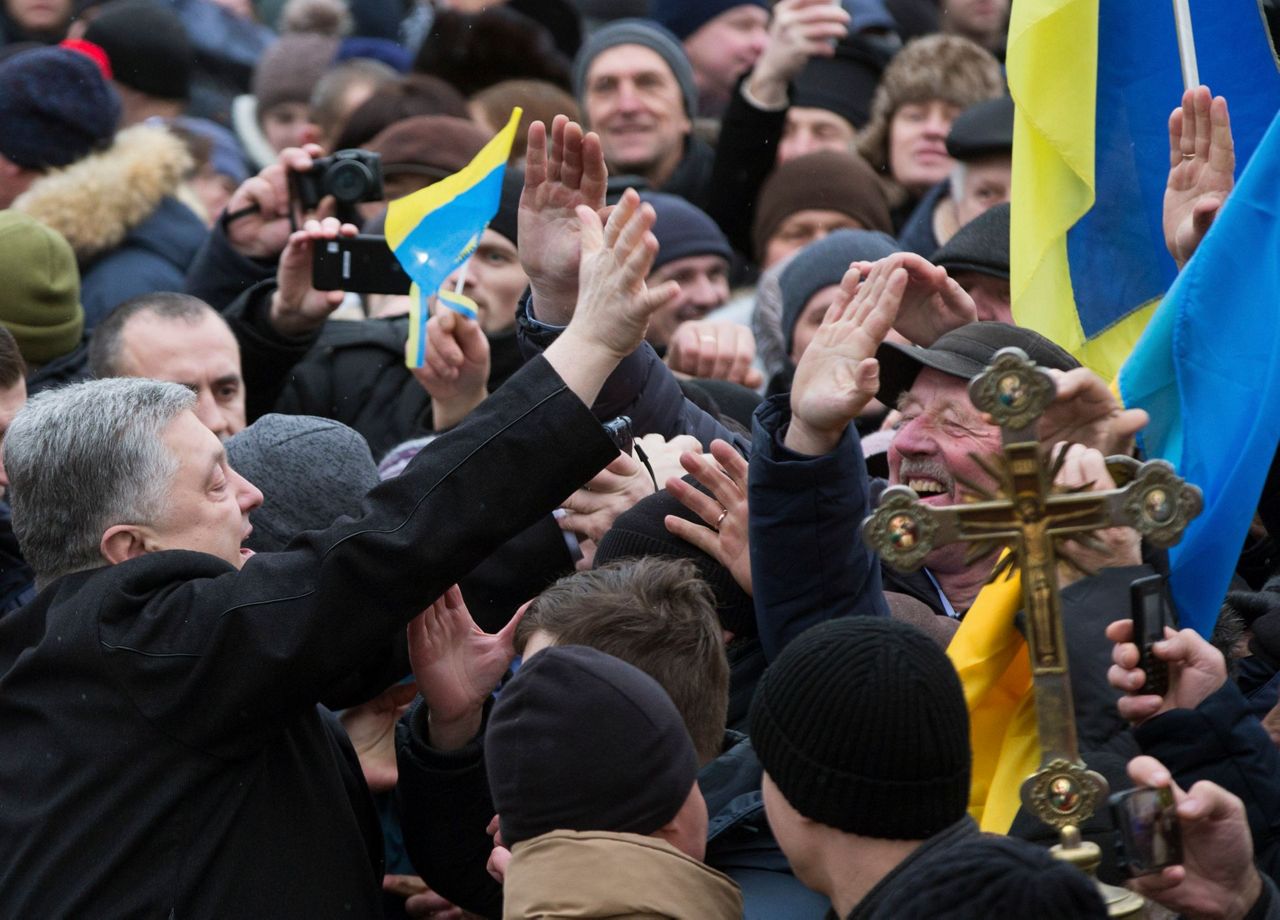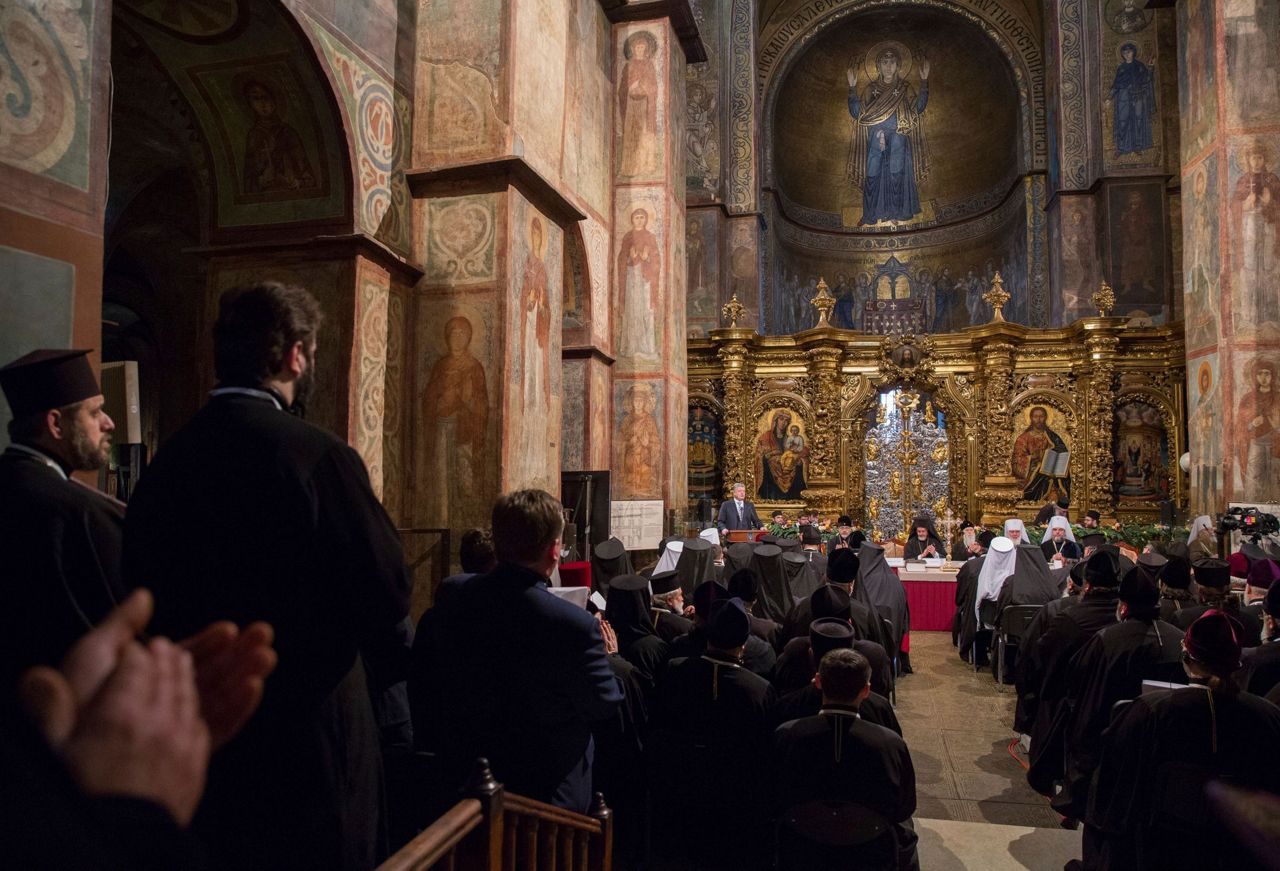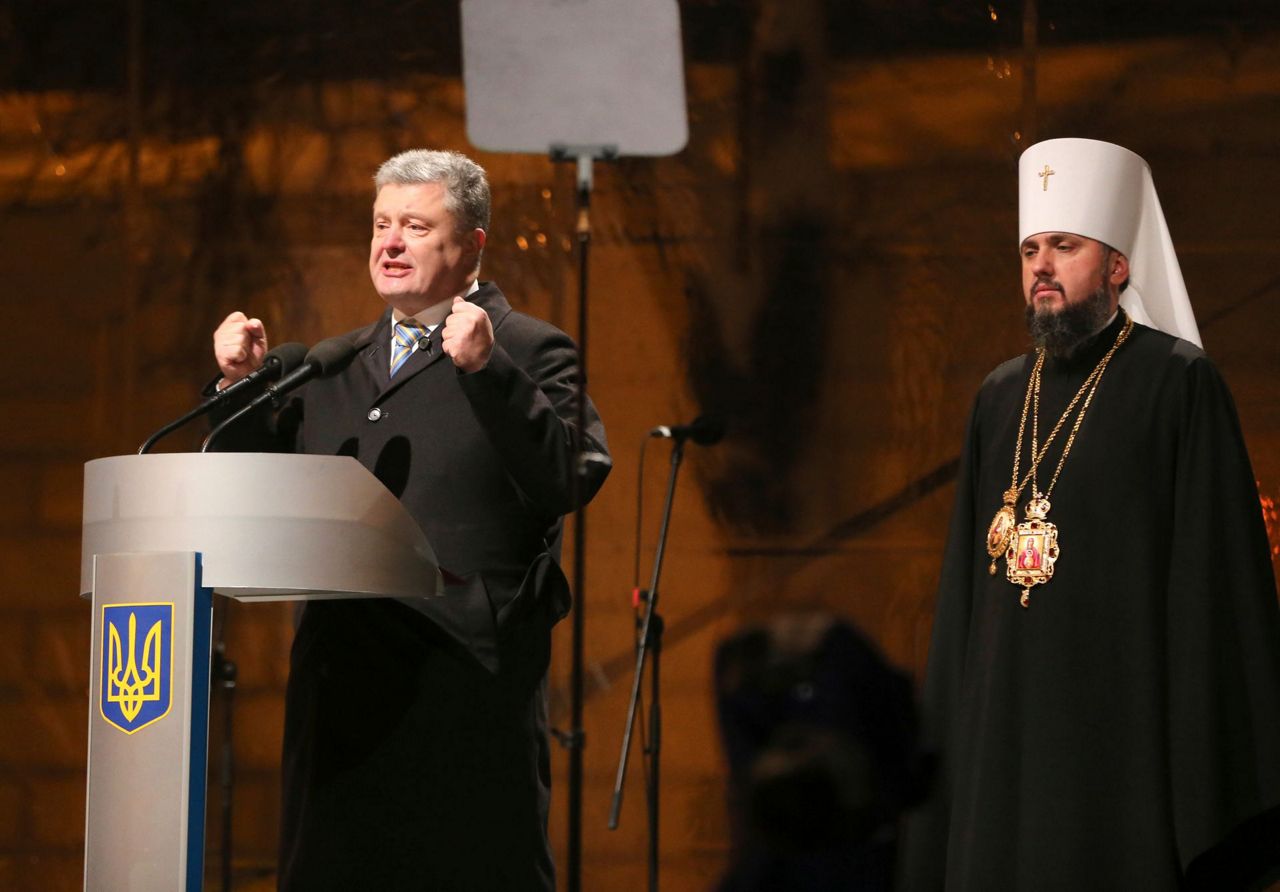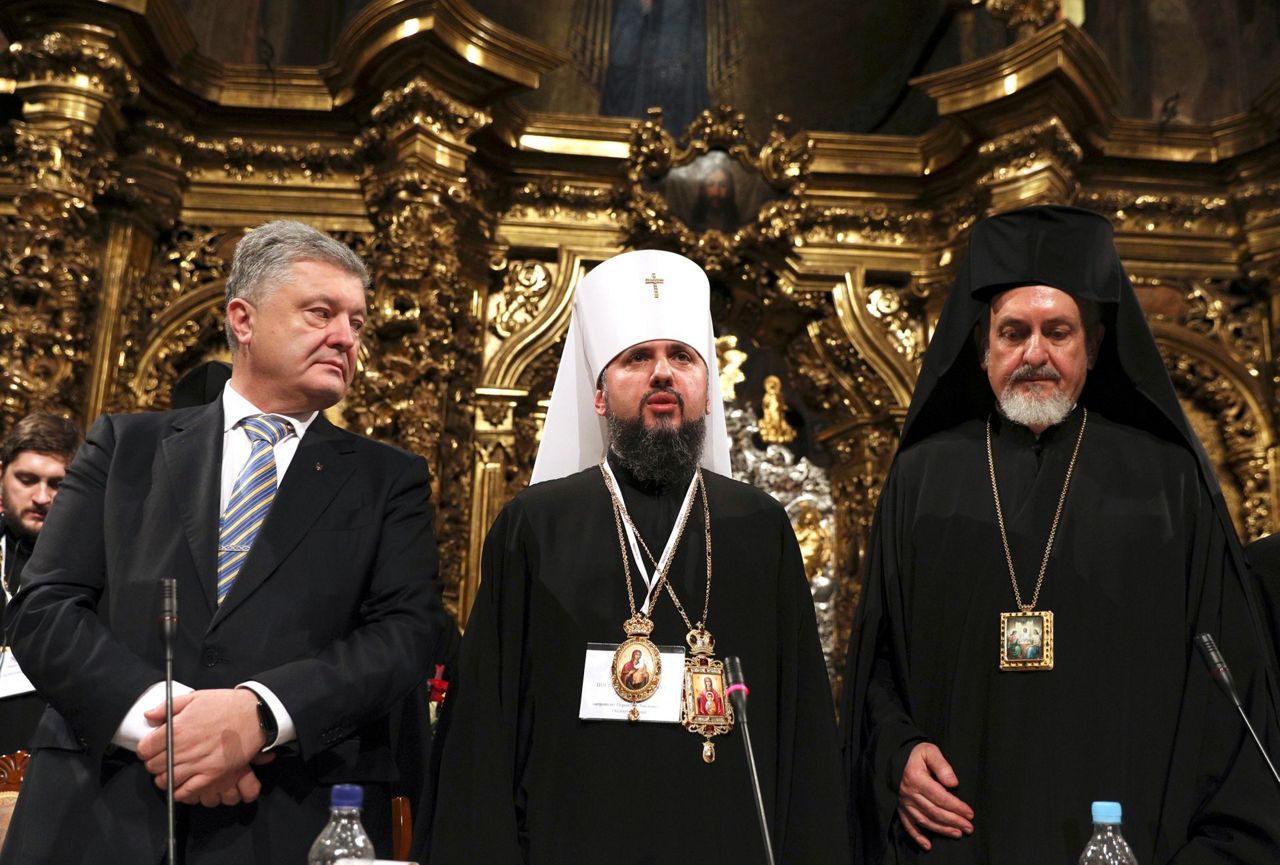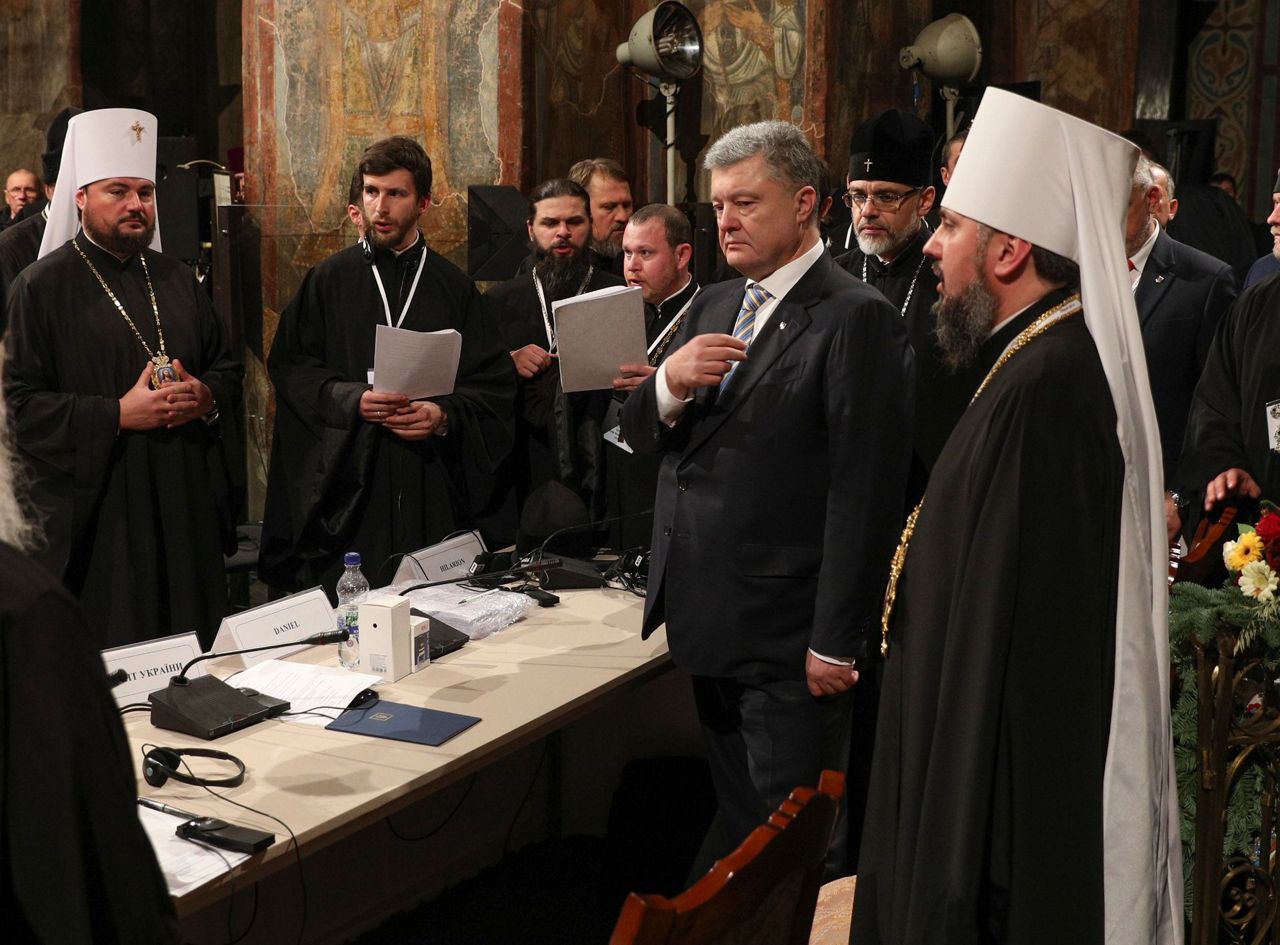KIEV, Ukraine (AP) — Ukrainian Orthodox leaders on Saturday approved the creation of a unified church independent of the Moscow Patriarchate and elected a leader to head that new church — a move that could exponentially raise tensions with neighboring Russia.
The vote, held at a closed-door synod in Kiev's St. Sophia Cathedral, is the latest in a series of confrontations between Ukraine and authorities in Russia, including President Vladimir Putin's government. Ahead of the vote, the Russian Orthodox Church called on the United Nations, the leaders of Germany and France, the pope and other spiritual leaders to protect Orthodox believers in Ukraine.
The leader of the new autocephalous Ukrainian Orthodox Church will be Metropolitan Epiphanius, a 39-year-old bishop from the Kiev Patriarchate.
"God heard our appeals and gave us this anticipated unity," Epiphanius told a crowd of thousands who had gathered outside the cathedral on Saturday to hear the news. He stressed that the new church's doors would be open to all, and encouraged Ukrainians to rally behind it.
Still spiritual leaders attending Saturday's synod couched their efforts to create an independent church in patriotic rhetoric. Father Sergei Dmitriev said — given Ukraine's ongoing conflicts with Russia — "we should have our own church, not an agent of the Kremlin in Ukraine."
Ukrainian President Petro Poroshenko, who has made the creation of a new church a key campaign issue, attended the synod Saturday as a non-voting observer.
"Ukraine was not, is not, and will not be the canonical territory of the Russian church," Poroshenko told the gathering, adding that creating an independent Ukrainian Orthodox Church was now a matter of national security.
"This is a question of Ukrainian statehood," Poroshenko said. "We are seizing spiritual independence, which can be likened to political independence. We are breaking the chains that tie us to the (Russian) empire."
Representatives of Ukraine's three Orthodox Churches attended the synod in Kiev, but only two from the branch loyal to Moscow showed up. One Russian bishop — Metropolitan Hilarion in Volokolamsk — on Saturday compared those two representatives of the Moscow-backed church to Judas, the biblical betrayer of Jesus.
The newly formed community is expected to receive independence from the Ecumenical Patriarchate of Constantinople, the Istanbul-based institution considered the so-called "first among equals" of leaders of the world's Orthodox Churches.
Relations between Ukraine and Russia have been damaged by Russia's 2014 annexation of the Black Sea peninsula of Crimea and its support for armed separatists fighting the government in eastern Ukraine. The church schism and a Nov. 25 naval clash in the Black Sea in which Russia seized three Ukrainian ships and detained 24 Ukrainian crewmen have caused them to deteriorate further.
Saturday's religious rupture from the Russian Orthodox Church is a potent — possibly explosive — mix of politics, religious faith and national identity.
Since the late 1600s, the Orthodox Church in Ukraine had been a wing of the Russian Orthodox Church rather than being ecclesiastically independent. Many Ukrainians, however, resented the implication that Ukraine was a vassal of Russia.
The move Saturday raises deep concerns about what will happen to the approximately 12,000 churches in Ukraine that were under the Moscow Patriarchate.
In recent years, about 50 churches in Ukraine under the Moscow Patriarchate have been forcibly seized and transferred to the Kiev Patriarchate, according to Metropolitan Antony Pakanich.
Poroshenko said Saturday he would travel with Epiphanius to Istanbul in January to receive a Tomos — an official document — from the head of global Orthodoxy that grants the new church independence.
The Ukrainian leader promised "to respect those who decide, for one reason or another," to remain with the Ukrainian branch of the Russian Orthodox Church — and also promised to protect those who choose to leave the Moscow Patriarchate and join the new church.
A spokesman for Patriarch Kirill, the head of the Russian Orthodox Church, vowed Saturday that the Moscow Patriarchate will continue to work in Ukraine despite the creation of the new independent church.
Ukrainian authorities have sought to portray Russian Orthodox priests in Ukraine as supporting Russian-backed separatists in eastern Ukraine, claims that the clerics have rejected.
Dmitriev, a Ukrainian army priest, was once loyal to the Moscow Patriarchate but changed his allegiance to the Kiev Patriarchate after the Russian-affiliated church began refusing to hold funerals for Ukrainian soldiers who died fighting in eastern Ukraine.
As church tensions have grown, Ukraine's Security Service has searched Russian Orthodox churches in Ukraine and the homes of Russian Orthodox priests in several Ukrainian cities. The agency also has summoned dozens of priests in for questioning.
Russian opposition figure Alexei Navalny, who has from time to time exhibited nationalist sympathies, lashed out at Putin for Ukraine's bid for religious autonomy.
"What was forged over centuries was destroyed by Putin and his idiots in four years," Navalny wrote on Twitter. "Putin is an enemy of the Russian world."
__
Karmanau reported from Minsk, Belarus. Mathew Bodner contributed from Moscow.
Copyright 2018 The Associated Press. All rights reserved. This material may not be published, broadcast, rewritten or redistributed.



